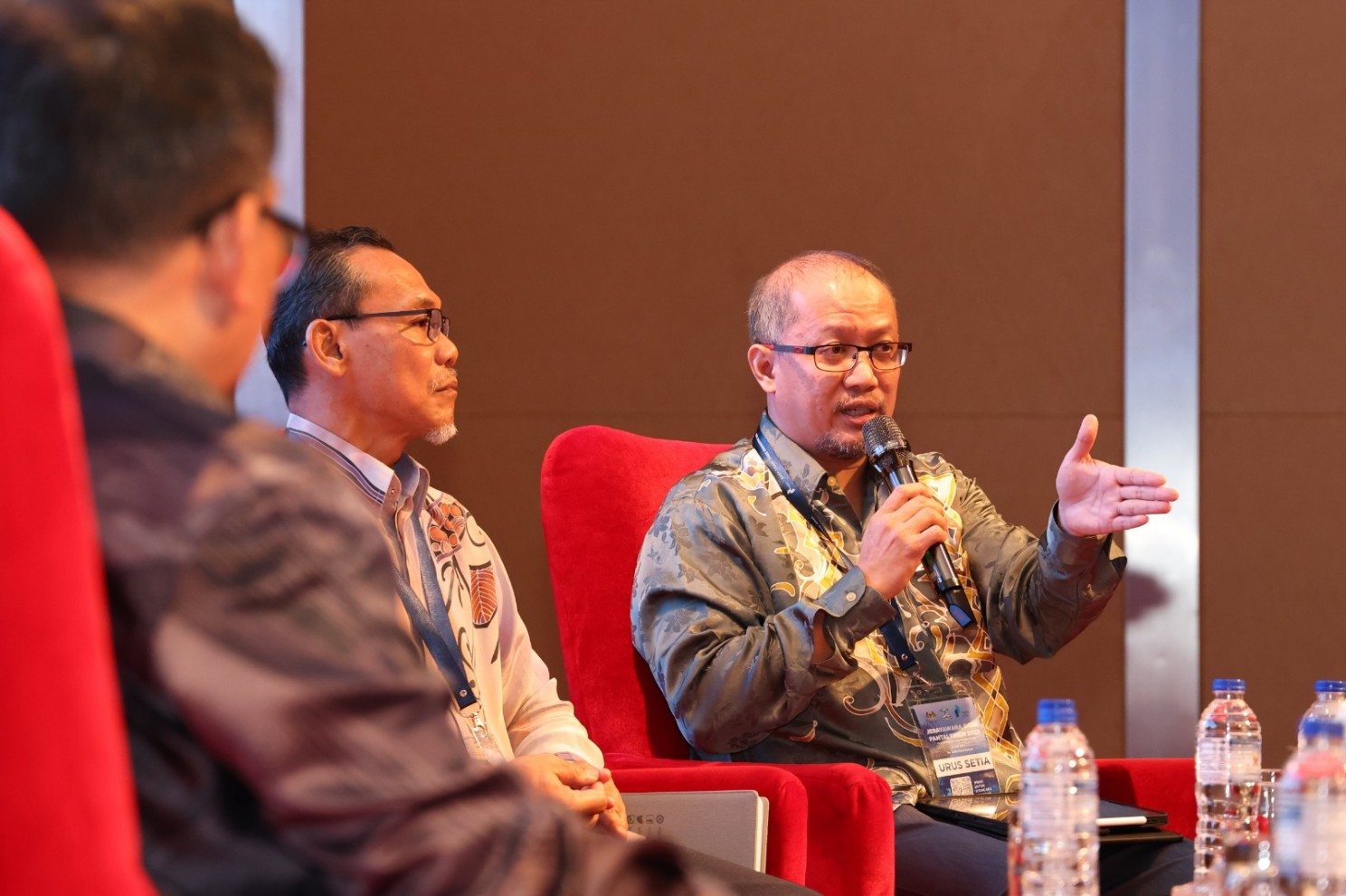In this episode, we have the pleasure of featuring Ezwan Zakaria , a seasoned procurement and supply chain professional from Malaysia.
Despite the distance, Ezwan has been a valued member of our community for several years, actively participating in both our online discussions and offline networking events in Jakarta and Surabaya. With his extensive background in the oil and gas industry, this interview promises to offer valuable insights and wisdom.
Ezwan Zakaria, Vice President - Special Project at Malaysia Petroleum Resources Corporation. Prior to this role, he has spent more than 20 years of experience in oil and gas sector mainly in the procurement & supply chain role.

[BSC]: Thanks for joining us, Pak Ezwan. Let's delve into your professional journey. Could you share how you began your career and what led you to your current role? You seem very passionate about procurement. Can you tell me more about what excites you about this field?
I actually started my career in stockbroking trading cash and futures before joining the Oil & Gas industry.
My entry into Oil & Gas began at the Customer Service Department doing Order Management responsible for the scheduling optimization of the delivery of petroleum products to the retail and commercial customers.
From Order Management, I then progressed to do Fleet Operations, Contracts Management, Supply & Distribution, Transport Optimization before joining Procurement for Road Transport in the Asia Pacific Region.
After spending many years in logistics and supply & distribution, I then joined Procurement for Development Projects.
What truly excites me about Procurement is getting a good deal. Everyone loves a good deal, one where you get a lower price than the market or a better product/service for the same price.
[BSC]: Given your extensive experience in the oil and gas industry, could you discuss how supply chain management has evolved within this sector? Are there any notable differences in comparison to other industries, such as retail or consumer goods?
My Oil & Gas exposure is more focused in the upstream sector particularly in Malaysia and generally in the region.
Change is not easy and it's been quite challenging to introduce change as the industry is heavily regulated.
But Covid has somehow expedited some of this required changes. Process improvement and simplification while observing governance and also introduces more automation and digitalization.
With major disruption to the global supply chain, this industry demonstrated the power of collaboration and improvement in demand planning leading to reduced wastage.
And last but not least, this industry saw increased interests in R&D on technology and innovation.
All the positive improvements were however disrupted post Covid as the industry ramps up to cater to the spike in the activity and with demand more than supply, prices takes a hit. All this brings opportunity for more active participation by procurement.
The upstream Oil & Gas is more of a long term play and one that requires heavy investment in technology and asset. It is definitely less agile compared to retail or consumer goods.
Plus the technology used requires niche technical capabilities and skills and securing the right vendor with the right team is a huge task on its own what more in the current environment where there's spike in activities everywhere for the limited pool of capable suppliers.
[BSC]: Can you share an example of a successful supply chain project you've led and the impact it had on the company?
One successful supply chain project I've led that is very memorable to be was a rescue project. It was the first of it's kind for my organization and one that involves heavy investment and new technology. Many foreign experts had to be brought in to work on it. After loading out from onshore, the facility had problem starting up before sailing away. My team and I were brought in to assist and support the project team with the problem they were facing.
This opportunity showed the organization on the benefit procurement can bring when involved early enough from defining the business requirement and demand planning all the way through to post award contracts management.
And one big enabler that I must mention here was the power of collaboration towards a common objectives. Only by having the right people with the right competency supporting one another working towards a common objectives, the challenges can be made easier to handle, hence leadership is very important.
[BSC]: What are your thoughts on the role of sustainability in the oil and gas supply chain, particularly in terms of reducing environmental impact and promoting ethical practices?
In Oil & Gas, sustainability is extremely important hence the increased focus on decarbonization. The entire supply chain has a role to play to ensure a successful sustainable outcome.
The E in ESG has been part of the standard requirement and practice for the longest of time in Oil & Gas which is a major focus area of HSSE.
With sustainability gaining more interest, the S and G will complete the entire ESG component which is key in the sustainability journey.
For this to be a success, it needs to be a standard practice and requirement throughout the entire supply chain. This is not an option as sustainability is important in tackling climate change.
[BSC]: What advice would you give to young professionals looking to start a career in supply chain and procurement?
The world of supply chain is ever evolving, change is constant.
The ability to learn, unlearn and relearn is extremely important. To be able to get a good deal, understanding what the market can offer, who the players are and a fair price for it are key. Keep innovative and be creative, understand your key driver and focus on the deal. (*)